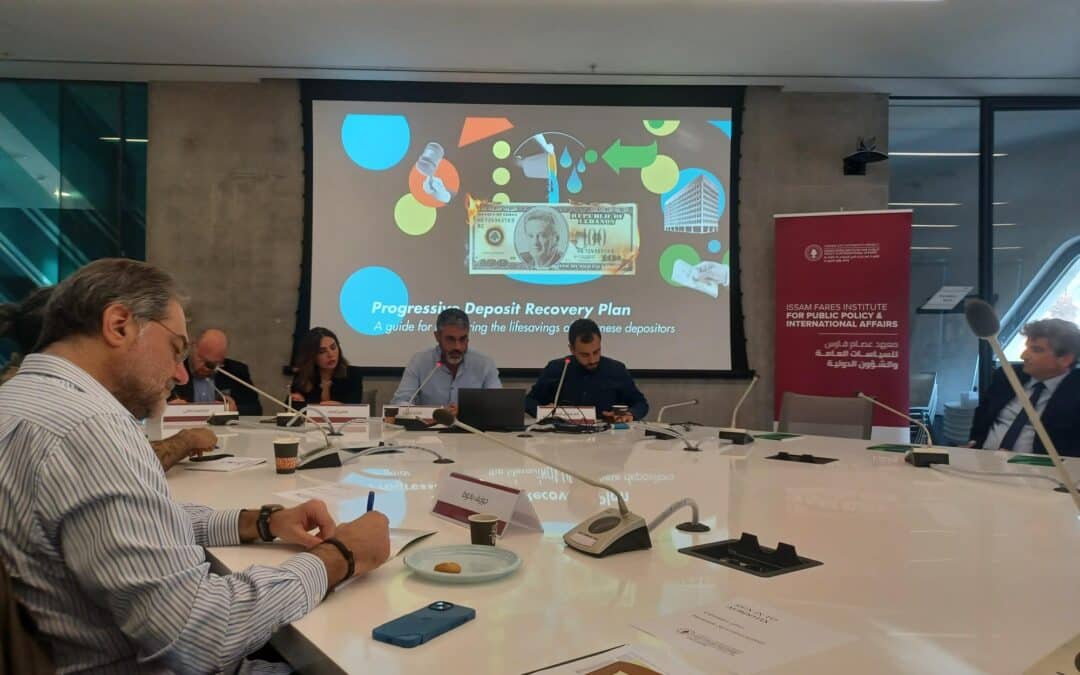IFI, in collaboration with Badil – The Alternative, hosted a closed discussion for heads of Lebanese syndicates on April 15, 2024. The discussion was centered around a study by Mohamad Farida titled “Lebanon’s Last Chance for A Progressive Deposit Recovery Plan,” published in December 2023.
The plan outlines strategies to address the issue of deposits trapped in the banking sector, including the funds of professional syndicates. The session featured a presentation of Farida’s study, with discussions involving Sabine El Kik, Lecturer at the Lebanese University and Founder of the legal consultancy Juriscale, and Ibrahim Jamali, IFI University Fellow and Lecturer in Finance at AUB’s Olayan Business School, moderated by Adam Chamseddine, Journalist and Badil Policy Advisor. Representatives from the following syndicates were in attendance: the Order of Engineers, Lawyers Syndicate and the Committee for the Protection of Depositors, the Order of Accountants and Auditors, the Order of Pharmacists, and the Order of Notaries.
During his presentation, Farida focused on his two-phase repayment plan for bank depositors, emphasizing accountability and clarifying that the plan would not utilize public assets or the Banque du Liban (BDL)’s gold reserves. The first phase is short-term and targets depositors with accounts of up to USD 100,000, covering 88% of total depositors. It relies solely on financial instruments and avoids legal actions. Additionally, this phase proposes reclaiming dividends paid to bank shareholders. The more complex second phase would involve legal actions to facilitate deposit recovery and includes funding from government debt, acquired assets, and legal actions targeting illegal financial activities and unfair transactions. Due to its legal complexity, this phase will take longer to implement.
El Kik expressed appreciation for the avoidance of terms such as “distribution of losses” within the plan. She argued that depositors are not experiencing losses but are victims of “deliberate policy errors.” Additionally, she highlighted the need for restructuring the BDL and noted that not all banks should be held equally accountable. El Kik commended the plan for its ability to categorize commercial banks, viewing it as a positive step. Furthermore, she stressed the urgency of addressing the issues faced by foreign depositors without waiting for a later phase, emphasizing the necessity of swiftly restoring their trust to aid Lebanon’s economic recovery.
Meanwhile, Jamali also commended the plan, but expressed skepticism about its implementation, highlighting the lack of political will to do so. He noted that even preliminary steps, such as the Banks Asset Quality Review, have not been initiated despite available foreign financing. Jamali emphasized that the implementation of important measures such as “the clawback” of dividends, crucial for covering the first phase, is highly unlikely without an independent judiciary in Lebanon, which he views as essential for the success of any plan.
